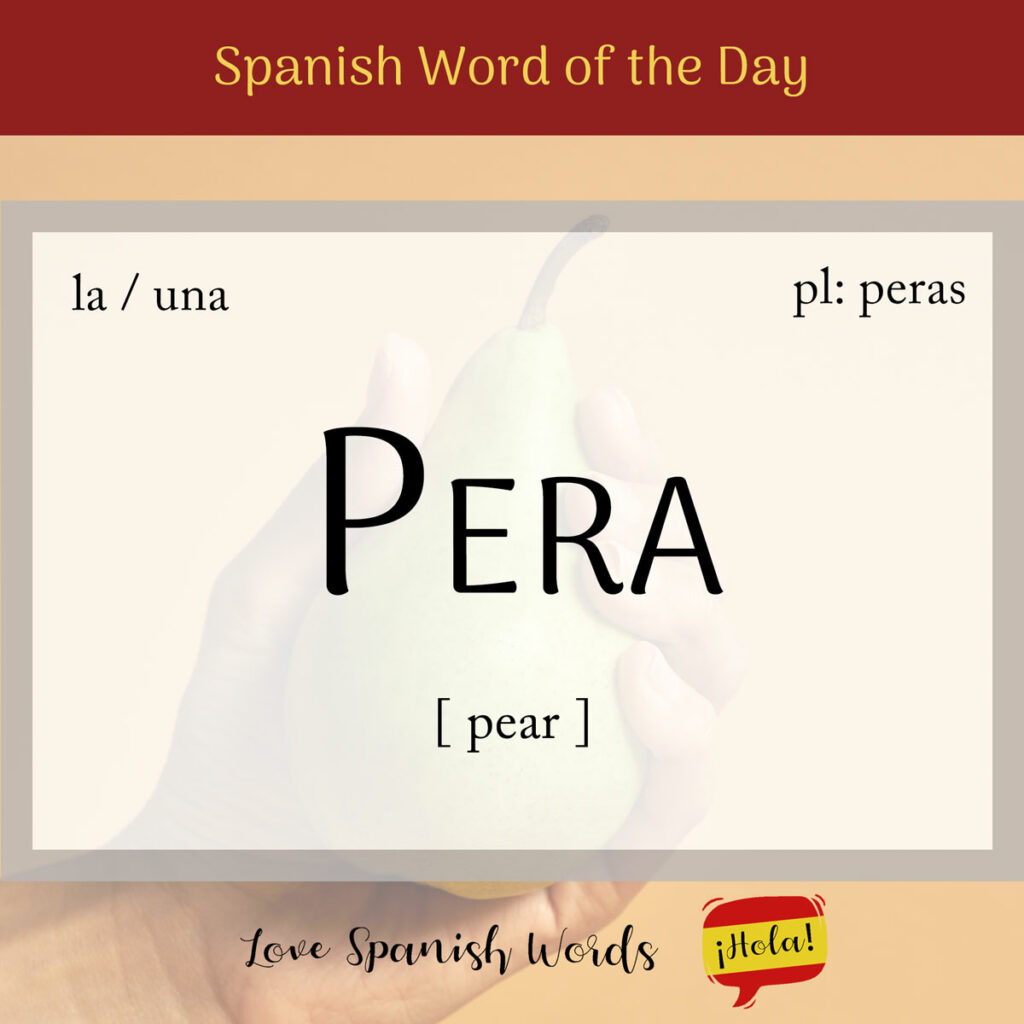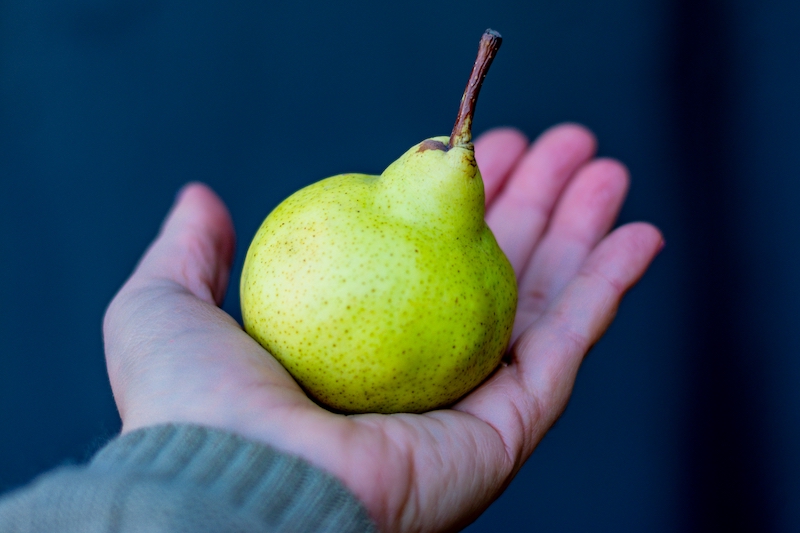Pears are one of the yummiest and healthiest fruits around. These sweet and juicy fruits are called pera, meaning pear in English. The word originates from the Latin word pira, which is the plural form of pirium, meaning pear in English.
Latin American Pronunciation
European Pronunciation

Pera is a feminine noun that takes the following definite and indefinite articles:
- la pera = the pear
- las peras = the pears
- una pera = a pear
- unas peras = some pears
La tarta de pera que hizo mi abuela estaba deliciosa.
The pear tart my grandmother made was delicious.
Peras have been enjoyed for thousands of years. They used to be eaten by ancient Greeks and Romans. Today, this tasty and versatile fruit is enjoyed by people everywhere. These juicy fruits are used to make ensalada (salad) and postre (dessert) recipes or enjoyed as jugo (juice) or sidra de pera (pear cider).
Peras are sweet fruits that can be eaten frescas (fresh) or cocinadas (cooked). They come in many shapes and sizes. Some are round and some are bell-shaped. Below are a few types of peras:
- pera verde = green pear: has a very sweet
- pera cafe = brown pear: has a somewhat spicy flavor
- pera roja = red pear: is sweet and colorful
Peras grow in many parts of the world, specifically in temperate climates. You can find them in huertas (orchards) and árboles (trees) in people’s backyards.
These fruits grow on beautiful trees with white or pink flores (flowers). After the flowers, small green fruits start to grow. These fruits mature and change colour as they madurar (ripen). Once ripe and ready to eat, they become blandas (soft) and dulces (sweet).
Peras are healthy fruits with lots of valor nutricional (nutritional value). They have fibra (fiber) and vitaminas (vitamins). They also keep you hydrated because they contain a high water content.
El jugo de pera es muy dulce y refrescante.
Pear juice is very sweet and refreshing.
You can enjoy peras as a sweet and fresh snack to add to your lunch or they can be horneadas (baked), escalfadas (poached), or made into mermeladas (jams) and pasteles (pies). You can even eat them with the piel (skin) to reap the fibre benefits.

Spanish idioms featuring ‘pera’
The following phrase, “Es como pedirle peras al olmo” translates to “It’s like asking for pears from the elm tree.” It’s used when you ask for something that is most likely impossible.
Estar como una pera
Literal translation: to be like a pear
English meaning: to be very tired or drunk
Pera en dulce
Literal translation: pear in candy
English meaning: something that is of great pleasure
Parecer una pera
Literal translation: to look like a pear
English meaning: to have an odd posture

